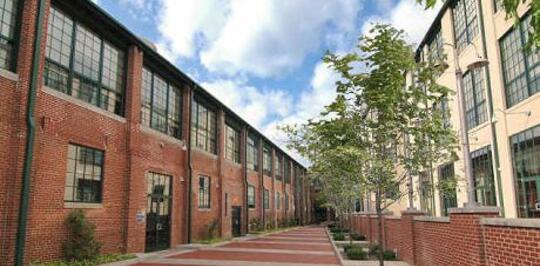- Joined
- May 11, 2013
- Posts
- 24,887
- Reaction score
- 13,613
- Points
- 2,755
- Location
- Morganton, N.C.
- Website
- conversations-ii.freeforums.net
...while the immediate question in the article deals with what to do with these empty churches, there are broader questions that need to be asked...

Excerpt...
Thoughts?

Excerpt...
ARNHEM, Netherlands—Two dozen scruffy skateboarders launched perilous jumps in a soaring old church building here on a recent night, watched over by a mosaic likeness of Jesus and a solemn array of stone saints. This is the Arnhem Skate Hall, an uneasy reincarnation of the Church of St. Joseph, which once rang with the prayers of nearly 1,000 worshipers.
It is one of hundreds of churches, closed or threatened by plunging membership, that pose a question for communities, and even governments, across Western Europe: What to do with once-holy, now-empty buildings that increasingly mark the countryside from Britain to Denmark?
The Skate Hall may not last long. The once-stately church is streaked with water damage and badly needs repair; the city sends the skaters tax bills; and the Roman Catholic Church, which still owns the building, is trying to sell it at a price they can’t afford.
“We’re in no-man’s-land,” says Collin Versteegh, the youthful 46-year-old who runs the operation, rolling cigarettes between denouncing local politicians. “We have no room to maneuver anywhere.” The Skate Hall’s plight is replicated across a continent that long nurtured Christianity but is becoming relentlessly secular.
The closing of Europe’s churches reflects the rapid weakening of the faith in Europe, a phenomenon that is painful to both worshipers and others who see religion as a unifying factor in a disparate society.
“In these little towns, you have a cafe, a church and a few houses—and that is the village,” says Lilian Grootswagers, an activist who fought to save the church in her Dutch town. “If the church is abandoned, we will have a huge change in our country.”
Trends for other religions in Europe haven’t matched those for Christianity. Orthodox Judaism, which is predominant in Europe, has held relatively steady. Islam, meanwhile, has grown amid immigration from Muslim countries in Africa and the Middle East.
The number of Muslims in Europe grew from about 4.1% of the total European population in 1990 to about 6% in 2010, and it is projected to reach 8%, or 58 million people, by 2030, according to Washington’s Pew Research Center.
For Christians, a church’s closure—often the centerpiece of the town square—is an emotional event. Here people have worshiped, felt grief and joy, and quested for a relationship with God. Even some secular residents are upset when these landmarks fall into disuse or are demolished. (Wall Street Journal)
Thoughts?





